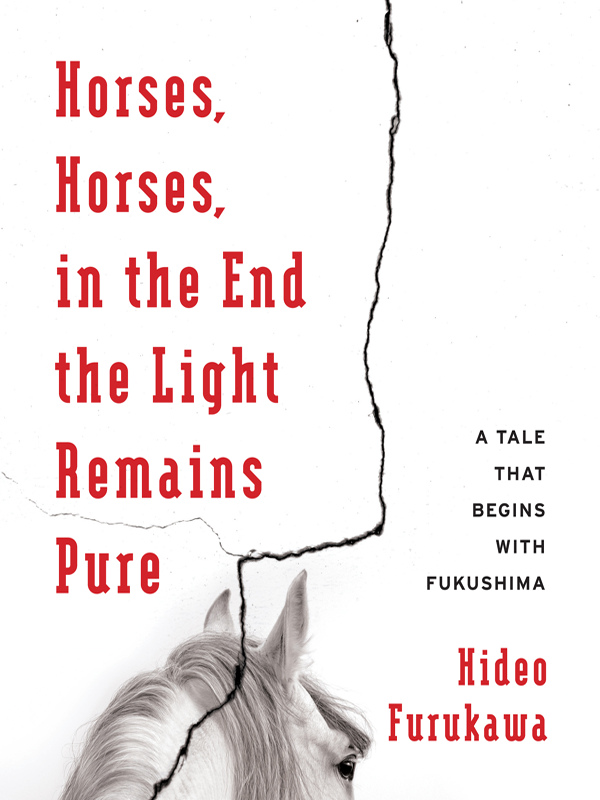
Horses, Horses, in the End the Light Remains Pure
A Tale That Begins with Fukushima
کتاب های مرتبط
- اطلاعات
- نقد و بررسی
- دیدگاه کاربران
نقد و بررسی

April 25, 2016
Furukawa's (Belka, Why Don't You Bark?) brief work is by turns essay, road trip journal, and imaginative intrusion of the fictional into the real. Originally published in Japan just months after the tripartite disaster of earthquake, tsunami, and nuclear plant meltdown in the Fukushima region on March 11, 2011, the narrative begins with Furukawa's immediate stunned reaction. He feels compelled to travel north with three companions to witness the devastation for himself. He witnesses what he describes as "ghost nature," a location now devoid of animal life, and later "a surprise attack" when the travelers feel "ambushed" by the obliteration of the landscape. He references moments from his novel The Holy Family, which is set in Fukushima. Then a character from The Holy Family appears to Furukawa and proceeds to tell him about the horses of the region and the violence that they have experienced in the past. The work concludes with the quartet's first sighting of seagulls instead of carrion crows and one final tale of a horse, which prompts Furukawa to remark that "Death definitely exists, but in this moment, death is not at work." A translator's note helps contextualize this work, which was one of the first responses to Japan's 2011 disasters.

June 15, 2016
Published shortly after earthquake, tsunami, and nuclear meltdown laid waste to northeast Japan on March 11, 2011, this genre-shock blend of fiction, memoir, history, and reportage captures interior reaction, the sense of being "spirited away." After meeting a teenage refugee at a Tokyo book event in late March, award-winning author Furukawa determines to head toward Fukushima, his hometown, with three companions in tow. They encounter endless debris and schoolchildren in gas masks (unlike the adults), but most telling are the injured horses, refugees themselves. Furukawa meditates on the horse's age-old presence in the region, tying equine history to Japanese history and finally world history. He also highlights the eerie parallel between the dates 3/11 and 9/11, ending with the affecting image of a starving white horse freeing itself to find grass. VERDICT Unexpected and rewarding for ambitious readers.
Copyright 2016 Library Journal, LLC Used with permission.

























دیدگاه کاربران